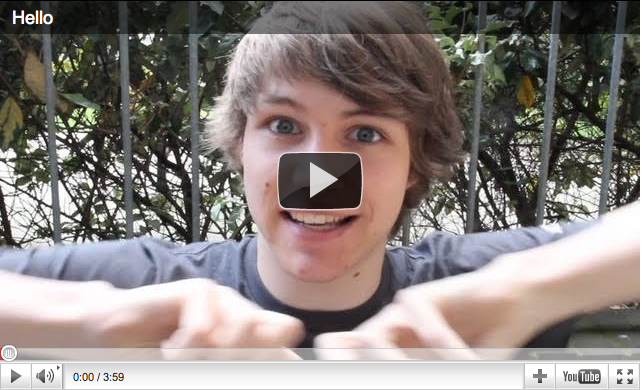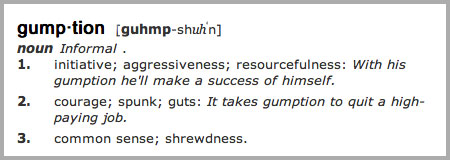A big focus for my business is brand building – how does one establish and grow a brand online, and create the processes and systems to turn an idea into a business. Today I would like to talk about the idea of building your brand from your core – how to create something that is uniquely you, and that provides not just a career and revenue, but fulfillment and creative control.
Charlie is a Brand
I’d like to introduce you to Charlie. He’s 20 years old, he’s from England, and there’s really nothing special about him, per se. Except… that he records and uploads videos to YouTube, mostly of him talking to the camera on some topic.
The thing is, each of his videos get well over 1 million views, oftentimes closer to 2 million views. And this usually happens in the first couple days of him uploading them. He now has 1 million subscribers too. So the question is: why, and what can we learn from Charlie? Well, here is Charlie introducing himself, and explaining what he does:

A recap:
- He’s never had a proper job, he just makes videos on YouTube.
- Google pays him to do it via advertising revenue.
- He also plays in a band that makes music about Dr. Who.
Why does this work? He won’t pretend to know, he basically fell into all this accidentally. But he does share this:
I don’t like to think of [my audience] as a sea of eyeballs that I need to trick into ‘liking’ my video or subscribing to my channel, or leave me a comment. I try and make good stuff. If I do that, the rest of the good stuff will come with it.
He doesn’t speak to a “community,” he speaks to individual people. You are just a person, one normal actual person. That makes it personal.
Since his success, he says he has been contacted by people “wanting a slice of the Charlie pie” – people making offers of collaboration, capitalizing on his popularity and turning it into a business venture.
He went down that road a bit, hiring a manager and trying some TV presentation. But it was weird for him, he had to work off a script, written by someone else, pretending to be him.
So he’s back out on his own. This is why:
“It has to be fun. If its not fun, I’m not going to want to put in the extra effort to make it as good as it needs to be. Fun is a necessity.”
Personal Brands as Business Strategy
Understandably, there are many folks online who want to build their career by becoming something more of a brand. Some have blogs or video blogs or websites or actual businesses, with products and services. Unlike our friend Charlie above, other folks may actively seek out affiliation with a well-established brand. For instance: if one can build an affiliation with Tide or Ford or Smart Water, then that credibility may land them other affiliations that will lead to a audience growth, a book deal, and of course, your own TV show.
And this works well for some people.
It’s interesting to consider what Charlie is doing compared to those who collect badges from major brands to display on their blogs. Charlie’s possibilities are in his own hands, and that has its own challenges and rewards.
But a primary one is that everything Charlie builds is coming from his core. He isn’t slowly changing what he does in order to fit with a sponsorship, a career path, or doing what he can to please a partner or client.
Drifting
How did you end up in the job you work right now? A lot of folks I know slowly drifted into their chosen career path, often based on convenience and building on where they were at the start. For instance, a friend of mine was a salesperson at a store in the mall during college, and then he became assistant manager, then changed jobs to another retail job, and little by little, carved out a career as a manager of major retail stores.
Was this his goal? When you were 24, was your goal to have the job title you have right now?
There is nothing wrong with this, I am simply reflecting on the fact that sometimes we end up in places far away from our center because of the choices others make for us. We pursue opportunities one step at a time, but 367 steps later, we find we went off-course somewhere.
The Right to Choose Your Path
This week JK Rowling announced an online “experience” by which she would finally release the Harry Potter books in digital formats. She was able to wait so long, and follow her own path because she retained the digital rights to the books.
Likewise, on May 13, 1971, Stevie Wonder turned 21, and his Motown contract to expire. From Wikipedia:
“Wonder independently recorded two albums, which he used as a bargaining tool while negotiating with Motown. Eventually the label agreed to his demands for full creative control and the rights to his own songs. The 120-page contract shattered precedent at Motown and additionally gave Wonder a much higher royalty rate.”
What followed were a series of seminal albums – an outpouring of creative mastery.
The thing is, we all inherently have the legal rights to choose our own path. We don’t need to negotiate them away from some larger corporate entity.
Justine Musk recently shared a wonderful post on building your brand, and had this advice:
“You don’t invent your personal ‘brand’ out of thin air, any more than you invent your life or your self. You search your soul, you explore your past, you excavate your fascinations and beliefs, and drill down and drill down for the meaning of it all.”
It’s not something that comes to you from others, it comes from inside of you. It’s not a business card, an office, a product, a newsletter list, or logo, or a contract with a major brand. It is an intangible that comes from within, and is baked into everything you do.
On the Cusp
We are always on the cusp of greatness. Sometimes it takes an extraordinary risk to move past boundaries.
In all of this, I have been considering, “Well Dan, what is YOUR brand?” I honestly have no idea. I was looking back through my blogs the other night, and surprised at what I found. I was reminded of who I was, what I dream about. This post from 2007 seemed relevant to this discussion: What Rockstars Can Teach Us About Innovation. It shares a single moment where Bono risked the entire career of U2 with one ten foot jump. But doing so launched them to worldwide success. The video:

Playing at Live Aid in 1985, U2 had a cult following, but by no means had any kind of mainstream fan-base. Their albums had fallen out of the charts, and they had a 3-song slot at the concert. The plan was to end with their strongest song, and hopefully attracting new fans with it. But during their second song, Bad, Bono went way off script.
Midway through the song, he wanders to the front of the stage. Looking down at the crowd 10+ feet below, he begins to focus on faces. With tens of thousands of people in the arena, and millions watching on TV worldwide, he was looking at the face of a single woman. He suddenly starts waving for security to allow the fan to go over the barrier and come up onto the stage. They don’t understand his intention, and as Bono becomes frustrated, he makes a split second decision to leap down 10 feet to the floor of the arena.
The band keeps playing in the background, unsure of where Bono went or why. The precious few minutes are getting eaten up, and the moment he jumps off the stage, they lose all chances of having time for their third song – their big shot at stardom.
Meanwhile, back on the arena floor, Bono pulls a fan from the crowd and slowly dances with her amid security guards. He finally makes his way back on stage, where the band continues the music from Bad. Bono grabs the microphone, and instead of singing any U2 song, he looks out at the crowd and begins to sing lyrics from the Rolling Stones’ Ruby Tuesday. Then he goes into Lou Reed’s Walk on the Wild Side.
As their time runs out, Bono rushes past his bandmates and off stage. They hated him for what he had done, and Bono assumed he had just inadvertently broken up the band.
But as the days passed something strange happened. U2’s albums began re-entering the charts. Bono’s effort to reach out to the audience became the highlight of the entire concert – the one person who broke from the script to create a moment of meaning from a massive spectacle.
What Bono did was stop talking, and start listening. The audience was not a thing, it was made up of unique individuals. Bono knew U2’s songs didn’t matter in that moment, bur rather, the songs that brought people together.
This came from his core, not the “plan” of promoting their songs.
This is Our Time
Each of us are on the cusp of greatness. But we have to stop the train that is our lives to take the action to realize that greatness. This is our time to share something worth being remembered for. To create the space in this world to give, and to help empower others.
So when we use imperfect words such as referring to people as “brands,” this is what I think we are referring to. A word that encapsulates everything we are and everything we can be.
Thanks!
-Dan



